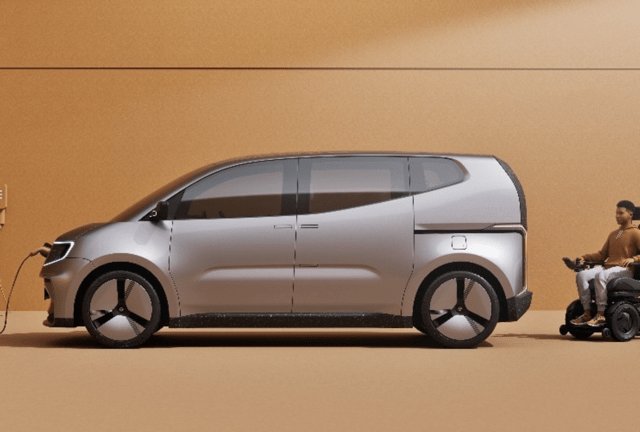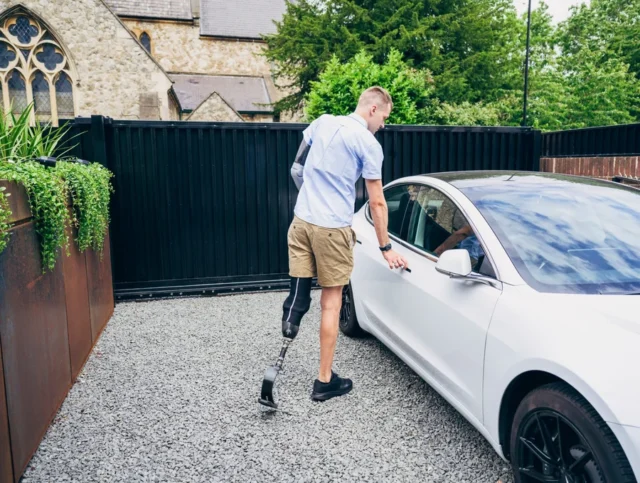Driving with Motor Neurone Disease
A diagnosis of Motor Neurone Disease (MND) ushers in a period of significant change. With challenges and choices at every turn, daily life becomes a new kind of journey. One of the key aspects that many individuals with MND grapple with is the concept of driving.
Continuing to drive
When MND affects your mobility or movement, the question of whether you can continue driving becomes crucial. Your independence may seem at stake, causing an understandably emotional time. Your driving ability will largely be dictated by your symptoms, the progression of the disease and your personal decision-making.
Legal considerations
Living in England and Wales imposes a legal obligation to inform the Driver and Vehicle Licensing Agency (DVLA) if you have been diagnosed with a medical condition. For Northern Ireland, this disclosure is required by the Driver and Vehicle Agency (DVA). Both organisations offer comprehensive lists of conditions, including MND, that must be reported.
Medical assessments and licences
In certain instances, the DVLA or DVA may request that you undergo a driving assessment and fill out a medical questionnaire. The assessment gauges whether you can safely continue driving, and if an adapted vehicle might be needed. These assessments, along with any subsequent reviews, are free of charge.
You can consult your GP or a regional Driver Assessment Centre for advice during this process. They can provide guidance on alternative options and driving with a disability. If you are still waiting for an assessment or confirmation from the DVLA or DVA, discuss with your GP whether it’s advisable to continue driving.
After assessing your condition, the DVLA or DVA might issue an unrestricted licence, a time-bound licence or a licence restricted to a specific adapted vehicle.
Driving assessments
A driving assessment isn’t like a driving test. Its goal is to review your driving skills and advise on any necessary adaptations to prolong your driving independence. If the DVLA or DVA deems you fit to drive, you retain the final decision on whether you wish to continue. You can opt for additional assessments, though these would incur a cost.
Car insurance
Upon diagnosis or any change in your condition, inform your car insurance company promptly. Failing to do so could invalidate your policy. Insurance companies are obligated not to discriminate against disabled individuals unless justified by concrete evidence.
Choosing and adapting cars
As MND progresses, your travel needs will likely change. You should discuss these changes with your health and social care team, or an occupational therapist with experience of MND. Car dealerships are well-versed with adapted cars but not specifically with MND. So your driving assessment could help them advise you on suitable vehicle options.
It’s also worth considering if your existing vehicle can be adapted to cater to your needs. Professional advice can guide you on feasible adaptations, such as swivel seats, transfer plates, hand controls and wheelchair storage solutions.
Plan ahead
When travelling by car, plan your route meticulously, considering comfort breaks and accessibility of parking and toilets. Though motorway service stations generally provide disabled parking and accessible toilets, those on smaller roads might not.
Conclusion
Living and driving with MND is an evolving journey that demands constant adaptation. Stay aware of your legal obligations, consider assessments and ensure your car and insurance are appropriately adjusted to fit your needs. With the right guidance and resources, you can continue to navigate the road ahead.
More like this

Accessible travel
The Best Cars Currently Available On The Motability Scheme
The Motability Scheme is fantastic for disabled people, providing them with the opportunity to lease a brand-new car using their qualifying Mobility Allowance. With so many…

Accessible travel
The Future of Electric WAVs: Overcoming Challenges & Embracing Accessibility
Discover the challenges of Electric Wheelchair Accessible Vehicles (eWAVs) and how our innovative adaptations are paving the way for accessible EVs today. Explore our insights into…

Driving with adaptations
Cost-Effective and Reliable Driving Aids for Amputees: Our Recommendations
Life after limb loss and amputation doesn’t have to mean the end of driving. Although it can affect your mobility and driving ability, there are a…